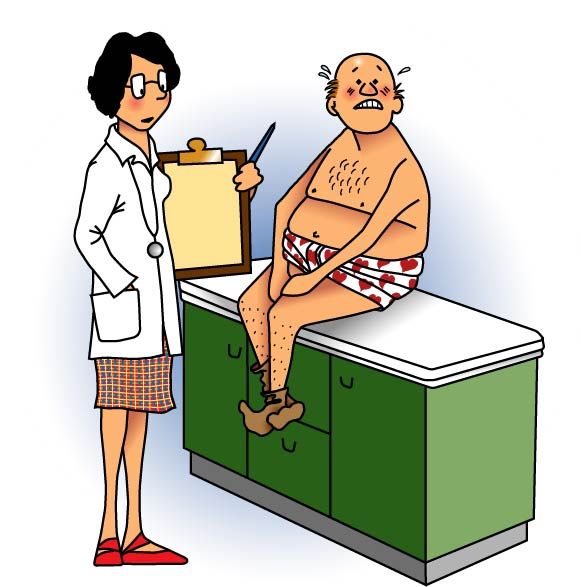|
Translate
This Page
|
|
|
|
..........References...........
|
| Books |
| Bibliography |
| National Uterine Fibroids Foundation |
| Your Story |
| Incredible Things Doctors Say... |
| Fibroid Survey |
| Men Survey |
Men Survey
Let's pretend you're visiting your doctor for your annual check up. Okay, okay -- I know guys only go in for a check up every decade or so but PRETEND it's your ANNUAL check up. Okay? On top of that, let's pretend that you've been having difficulty urinating lately and that's what finally made you schedule the appointment.
You're sitting
on the edge of the examining table in your skivvies (and maybe your socks)
and the doctor (let's say it's a female just for the heck of it -- most women's
docs are men so let's reverse it for the guys for the FULL effect of the question)
anyway, your doctor tells you to drop your shorts and then proceeds to do
an exam of your genitals. 
When done, she tells you to pull up your shorts and then turns to make some notes on your chart. Then, in all seriousness, she turns back to you and says the following:
"You know John Doe Patient, you have an enlarged prostate gland. That's probably why you've been having difficulty urinating lately. I've reviewed your medical history and it's my recommendation that you should undergo a procedure called HISterectomy -- it's a procedure to surgically remove your testicles."(Okay, the real name of the surgical procedure to remove a man's testicles is orchiectomy. For now, let's overlook the medical specifics and move on with the survey.)
Home
| Choices | Diagnostics
| The Decision | Related
Health Issues | My Journal | Subscribe
| References
Medical Disclaimer | copyright
information ©1999-02 | send
Email
This page last updated Saturday, February 02, 2002